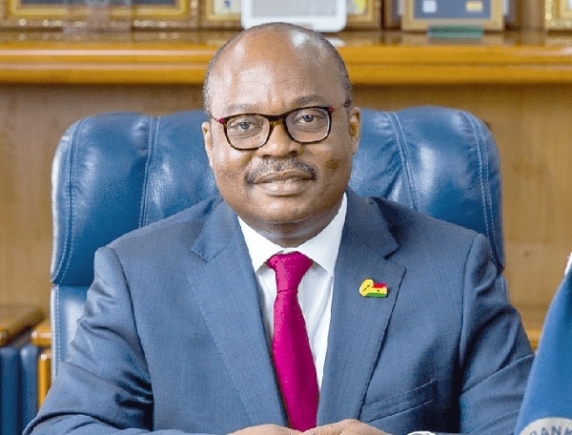
Ghana’s gross international reserves up
THE country's Gross International Reserve has surged by $1.58 billion to reach $7.5 billion at the end of August 2024.
This is equivalent to 3.4 months of import cover, a significant milestone for the nation's economic stability.
The surge in the grid's reserve was mainly driven by the Bank of Ghana's Gold Purchase programme.
The central bank Governor, Dr Ernest Addison, said that at the monetary policy committee news conference last Friday.
A robust international reserve provides a cushion against economic shocks, enables the central bank to manage exchange rates, and boosts investor confidence.
In today's fast-paced global economy, a healthy reserve is crucial for sustaining economic growth and development.
The Monetary Policy Committee (MPC) of the Bank of Ghana also made a bold move by cutting the benchmark monetary policy rate by 200 basis points to 27 per cent.
This significant reduction marked the first decrease in eight months and the steepest since March 2018.
The decision was driven by the country's easing inflation rate, which had slowed for the fifth consecutive month in August 2024 to 20.4 per cent. This downward trend signalled a favourable economic outlook, prompting the MPC to adjust interest rates.
Strong performance
Governor Addison explained that the economy's strong performance and improved macroeconomic conditions created space for the substantial rate cut. The central bank aims to reduce inflation to 13 per cent to 17 per cent by year-end and steadily move towards its medium-term target by the end of 2025.
The Bank of Ghana employs an Inflation Targeting (IT) framework with a flexible exchange rate regime to ensure price stability over the medium term. Under this framework, the MPC regularly assesses economic conditions and adjusts interest rates accordingly.
Key factors influencing the rate cut included the decreasing inflation rate, which eased concerns about inflation's impact on the economy. The stable exchange rate, with the Ghanaian cedi performing relatively well against major currencies, also supported the rate reduction.
Additionally, stronger-than-expected economic expansion warranted a more accommodative monetary policy stance. The MPC further considered the global economic outlook, factoring in the potential benefits of lower interest rates.